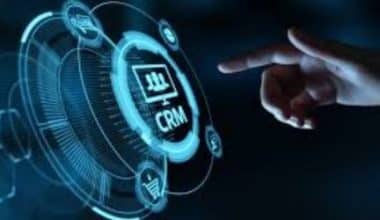Who is a Ticket Manager?
A ticket manager is a key event and guest management professional who plans, organizes, and manages the operations, activities, and personnel of a central ticket office. They also act on their own initiative with little supervision, making decisions that affect work units such as policy deviations or exceptions.
This is the second level of a two-tiered classification and differs from the Ticket Office Assistant Manager in that the incumbent may supervise the Assistant Manager. Due to the large staff and volume within the ticket office, the Ticket Office Manager is primarily involved with supervision and administrative functions, with very little involvement in performing day-to-day operations. Incumbents typically report to a Director or Administrator
What Is The Description Of Ticket Management?
Ticket management is the process of managing customer problems and requests. It’s built into ticket management software and is a common business tool.
Since manually tracking customer issues would be time-consuming and difficult to regulate, ticket management is an essential component of help desk management.
This is because it allows you to:
- It allows you to manage data and customer inquiries.
- To respond to customer requests, a company uses ticket management.
- This enables customer service representatives to be more organized and provide better service to customers.
- Using a ticket management system can make things easier and faster.
What Is The Role Of The Ticket Manager?
#1. High-performing ticketing function
They manage an organization’s ticketing function and ensure a high-performing ticketing system. Additionally, they maximize revenue across all channels and ensure high internal standards
#2. They manage communication:
They ensure communication flows with the appropriate teams throughout the organization and also ensure that the Visitor Services and call center teams are fully informed of all events.
Additionally, one must develop effective relationships with external stakeholders such as ticket brokers, event organizers, and promoters, as well as wider industry contacts, to maintain their position.
#3. They manage projects:
Ticket managers maintain all ticketing-related systems; create and deliver project plans
as an active member of various project groups and lead the strategic management of inventory for all internally produced work. They even go ahead to provide expert sales advice to outside producers and manage the contract and the relationship with the third-party call center provider.
#4. Operate management software:
A ticket manager must be an expert in all front-end Tessitura processes (including creation and maintenance). They must also possess experience in seating plan enhancements, data imports, data structures, and hierarchy to maintain a self-sufficient ticketing operation and provide training to new employees as needed. Furthermore, you must be able to manage the ticketing assistants, including their learning, development, and ongoing evaluation.
#5. Strategic planning and evaluation
As a ticket manager, one must also contribute to the internal production budgeting, targeting, and forecasting processes. You must also carry out work that allows data-driven decision-making and provides accurate projections in collaboration with producing marketing, and insight leads.
#6. Understand Ticketing Policies:
Keep up to date on current trends and best practices in ticketing operations, such as Health and Security Act, PCI DSS compliance, and the Data Protection Act;
Who Is A Sales And Ticketing Manager?
A Sales and Ticketing Manager is in charge of increasing sales and revenue for a venue or organization. This entails developing ticketing strategies that increase revenue while also developing and growing audiences.
Additionally, the Sales and Ticketing Manager will oversee and manage the team to ensure that ticketing processes are efficient and that a high level of customer service is provided.
In some venues, the Ticketing Manager and the Office Manager roles are combined, but the Office Manager is usually in charge of the day-to-day operations of the box office, whereas the Ticketing Manager has a more strategic sales overview.
What Is The Role Of A Sales And Ticketing Manager?
The main responsibilities of a sales and ticketing manager are:
- Creating revenue-maximizing sales and ticketing strategies
- Managing the Box Office Manager and team
- Developing sales strategies for other areas, such as theater bars, membership programs, and donations
- CRM (customer relationship management) system administration
- Collaboration with the marketing team on pricing and initiatives such as ticket sales.
- Relationship management with third-party ticket brokers and other outlets where tickets can be purchased
- In charge of website development and ensuring that customers’ booking processes go smoothly.
- Creating and analyzing financial and sales reports
- Ensure that the office team and any other relevant departments are providing excellent customer service.
Softwares Used in Ticket Management
#1. Zoho Desk
Zoho Desk is a multi-purpose ticketing system that assists businesses in focusing on the customer. It’s simple to use, inexpensive, and can be tailored to any business. Zoho Desk also pulls customer information from Zoho CRM so that you can tag each ticket.
#2 Hubspot CRM
Hubspot CRM is a popular ticket-tracking software for construction firms. It keeps all of your contacts in one customizable and centralized database, manages your pipeline, and allows you to focus on providing customer service.
#3 SysAid
SysAid’s IT service ticketing system software is all-in-one. It simplifies daily IT challenges for small and large businesses by automating management, monitoring assets, and managing all IT tasks on a single platform.
#4 TicketsCandy
TicketsCandy is a full-featured online event ticketing system created for SMEs, startups, agencies, and enterprises. TicketsCandy provides full-service Web app solutions. This online event ticketing system provides a dashboard, billing and invoicing, calendar management, check-in and check-out, and contact management all in one place.
#5 RemotePC
RemotePC is ideal for businesses, teams, and customers. This remote desktop software includes a comprehensive dashboard and a plethora of features that allow you to connect, collaborate, and control remote sessions for PC and Mac.
#6 Ticket Tailor
Ticket Tailor is a full-featured event management software designed for startups and small businesses. Ticket Tailor offers complete Windows-based solutions. This online event management system combines a customer database, payment processing, and registration.
#7 Zendesk
Zendesk, a leading ticket management system, and customer engagement software, helps small and midsized businesses foster better customer relationships. Zendesk ticketing software has served over 150,000 customers from various industries and offers support in over 30 languages.
How Can I Improve My Ticket Quality?
#1. Avoid creating unnecessary tickets for issues with approved resolutions.
Unnecessary ticket creation can result in overworked IT service desk operators. When an IT issue recurs, IT operators should develop an approved solution and document it in the IT organization’s knowledge base. Users should be encouraged to self-service their IT issues through the use of approved knowledge base resolutions or a customized self-service portal. ITSM software tools can assist users in connecting with approved resolutions before creating an unnecessary ticket.
#2. Determine which tickets are handled first.
It is up to your IT service desk to decide how to organize and prioritize tickets. The best prioritization method for each company is unique and depends on a variety of factors. The most common models are as follows:
- First in, first out (also known as first-come, first-served).
- Pick & Choose/VIP, where tickets are handled based on the request’s urgency.
Your organization may decide to stick with one model or to switch models as needed based on business needs. The goal of ticket prioritization should be to provide the best possible customer service to end users.
Any major change must almost always be approved by a change manager in organizations that adhere to the ITIL framework and processes. Organizations should implement ITSM software tools that automatically notify change managers when their authorization is required. This ensures timely communication and coordination between change management and the service desk, reducing the time required to resolve issues that require change implementation.
#4. Always configure and monitor ticket status.
Service desk personnel are responsible for accurately setting and monitoring the status of each ticket to avoid duplication of effort and ensure proper prioritization. Tickets should be classified as one of the following:
- New/Open
- In Progress
- On Hold
- Closed
Service desk personnel should develop consistent criteria for assigning each type of ticket status.
#5 Determine Urgency Based on Ticket Information
IT service and support personnel should implement and enforce a standard ticket format that includes the user’s contact information, a description of the IT issue, and an assessment of the impact on business processes. This data can be used to determine the urgency of each ticket, which is essential for service desk teams who respond to tickets based on their priority.
Therefore, the development of a standardized method for assessing ticket urgency aids in ensuring that service and support personnel’s priorities are aligned with the needs of the business.
How Do You Manage Tickets Effectively?
- Ensure that agents are properly trained.
- Determine your ticket prioritization strategy.
- Utilize all of the automation options.
- Make sure your team isn’t overburdened.
- Make good use of ticket tagging.
- Set and monitor the status of tickets.
- Make canned messages and template messages.
What Personality Traits Do You Need To Be A Ticket Manager?
Look for someone with strong organizational and communication abilities, as well as confidence. To be successful, they must understand their authority while maintaining a focus on customer service. One piece of advice for anyone in charge of these people: make sure that the credential managers are empowered by you or management in general to enforce the policies.
#2 Personality and Communication Capabilities
Excellent personality and communication skills, as well as excellent customer service skills; previous experience in a box office or accounting environment; attention to detail and organization skills; ability to troubleshoot and adapt to situations on the fly; ability to work under pressure.
#3. Calm, but with a sense of urgency!
One must be capable of dealing with a lot of pressure from jerks while remaining calm, and also capable of working their tails off! exceptional attention to detail. The more knowledge about the event, the better.
#4. Strategic, operational, and compassionate
A rare combination of someone who can see the big picture while also being hands-on and operationally practical. can have confidence and conviction in implementing and upholding the policies at play. So there’s a deep understanding of what that means.
#5. Multitasking and Calm Under Pressure
It can be a demanding position, so having someone who can juggle multiple tasks at once without becoming overly stressed is essential. They must be able to handle sponsors, artists, and others with whom we have relationships in an organized, effective, and pleasant manner, as well as solve problems.
How Can I Become A Manager With No Experience?
Here are eight steps to getting hired as a manager if you’ve never managed people before:
#1. Be educated.
Learn about management while in your current role by reading books, attending seminars, speaking with managers, and developing a philosophy. Take a course or pursue a professional certification.
#2. Volunteer for a project
Volunteer to head a project within your team to gain valuable experience delegating tasks, managing a budget, and motivating a team.
#3. Mentor a teammate
Mentorship is an important part of a manager’s job and can be formal or informal. Volunteer to be a mentor to a new hire, or make a conscious effort to support them. It builds on skills like giving feedback, active listening, and resolving conflict.
#4. Support your supervisor.
Offer to help your manager with simple tasks, such as making a schedule or leading interviews, to demonstrate initiative and learn managerial skills.
#5. Revise your resume.
Retool your resume to target management jobs by highlighting managerial tasks you have performed in previous jobs. List relevant skills like leadership, coaching, scheduling, and communication. Include an objective statement stating your intention to move into management.
#6. Consider internal opportunities
Apply for open management jobs at your current workplace to increase your chances of getting an interview. Highlight your knowledge of the industry, team, and company values.
#7. Consider assistant manager roles.
Assistant managers can be a good fit for someone new to managing people, as they can perform tasks such as communicating with staff, supporting customers, collaborating with other departments, and handling daily operations.
#8. Prepare for interviews
Prepare examples of times when you demonstrated managerial potential for an interview to demonstrate your potential.
REGIONAL SALES MANAGER: Definition, What they do, Salary & Difference
IT MANAGER: Meaning, Services, Salary & Resume
PRODUCTION MANAGER: Definition, Duties, Salary, and Course
PROJECT MANAGER: Meaning, Software, Salary, Skills & Courses
References:
Boise State






